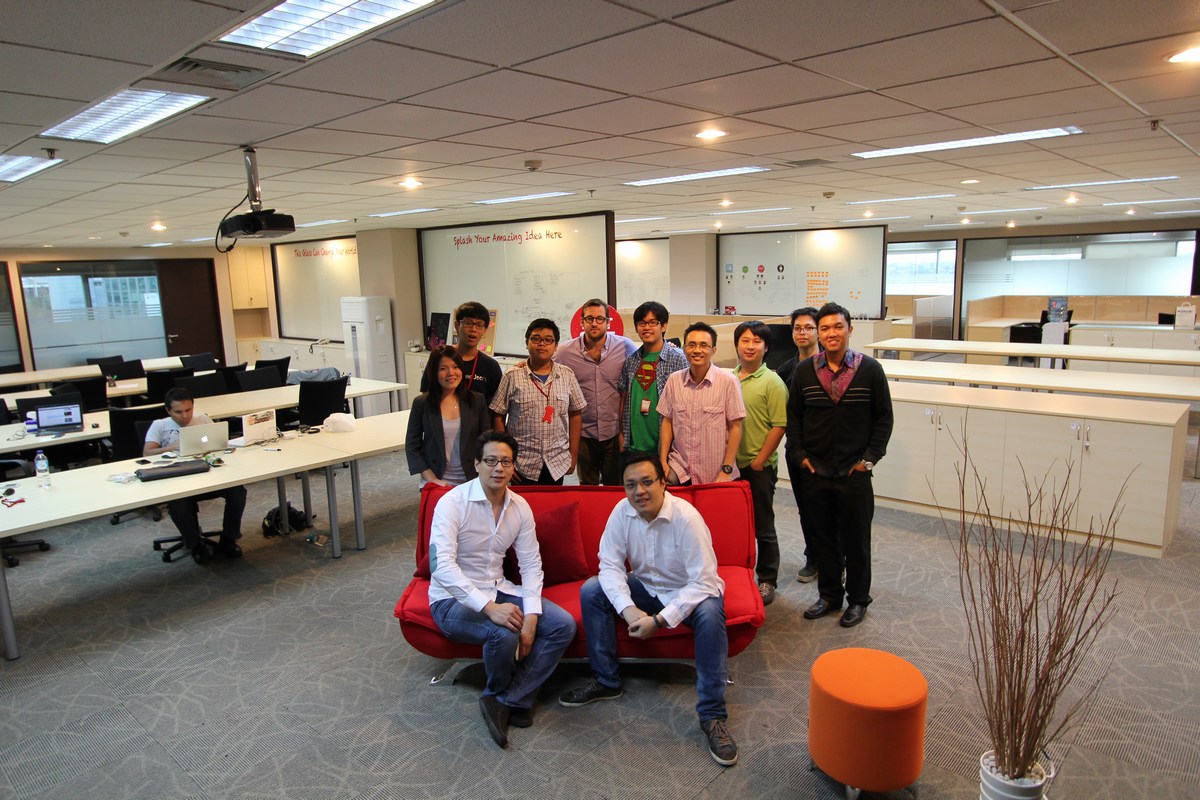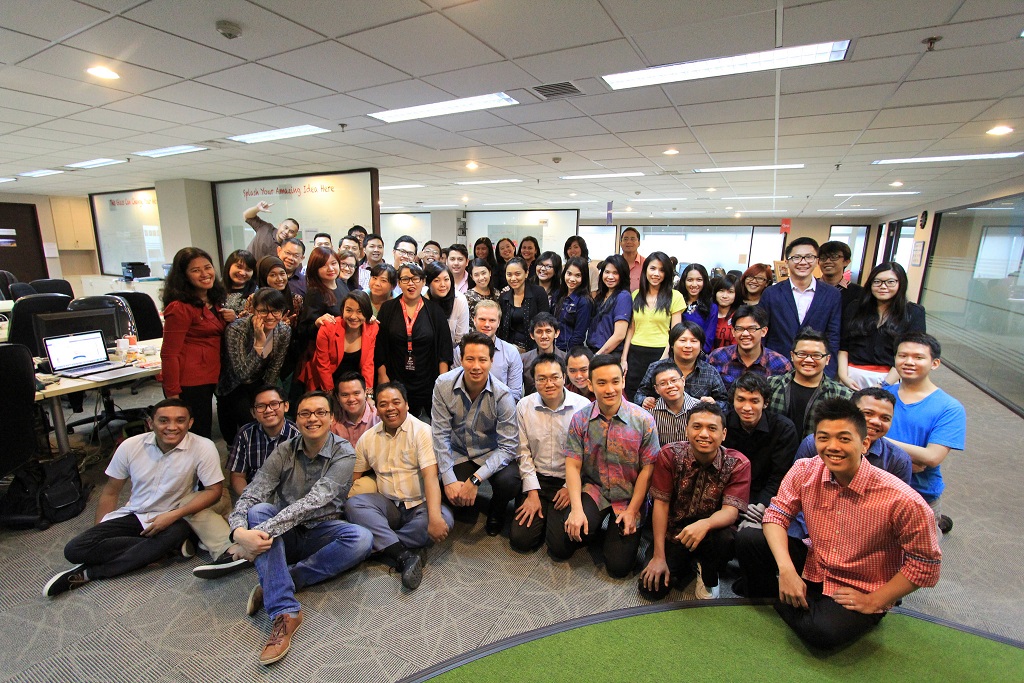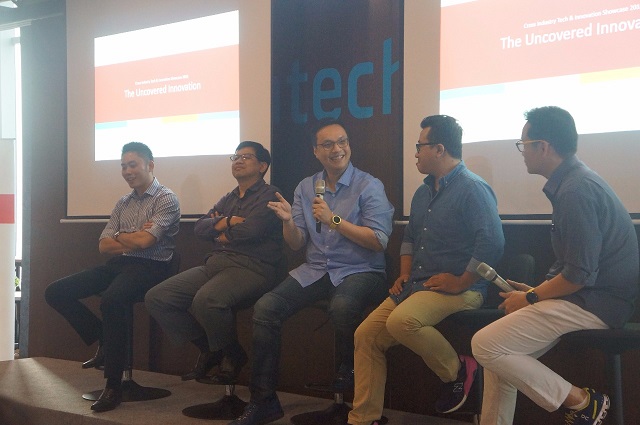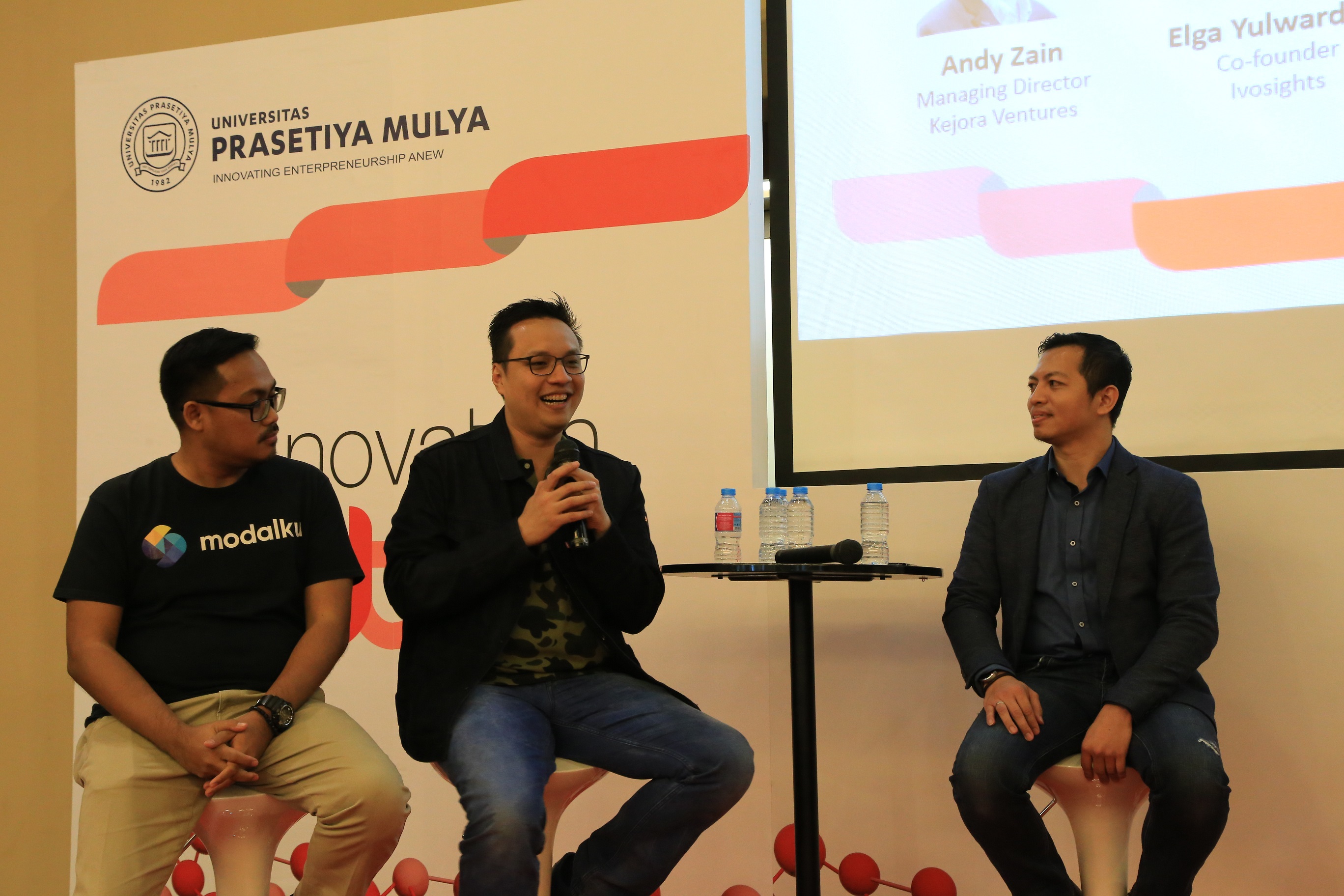This article is a part of DailySocial’s Mastermind Series, featuring innovators and leaders in Indonesia’s tech industry sharing their stories and point of view.
Andy Zain used to be a big believer in the mobile industry. He follows his path to success early at 19, working for 12 years to learn from the same supervisor. Until he finally decided to go all-in and co-founded Elasitas, a provider of integrated solutions for telecommunication and information marketplace.
For almost 20 years, Andy has been a serial entrepreneur, an executive, an advisor & involved in setting up businesses for several high growth startups and work with global brand clients such as Disney Mobile, Yahoo! Mobile, Cartoon Network, EA Games, and Gameloft for their go-to-market efforts to Southeast Asia.
He is now the Managing Partner of Kejora Ventures, a growth stage venture capital firm based in Southeast Asia. Prior to launching Kejora, he held a position as Director in SkyBee Tbk, an Indonesian Stock Exchange (IDX) listed company in the technology, media & telecommunication sector.
As an ecosystem person, Andy Zain is quite active in mentoring and supporting accelerator programs. He believes our nation’s talents are capable not only to create a high-profile and profitable company but also something that can transform our country into a better future.
Recently, the DailySocial team involved in a casual-yet-thorough discussion with Andy Zain, here’s what we can share:
First, let’s talk about your passion for the tech industry. Aside from being a full-time serial entrepreneur and investor, you’re also actively involved in mentoring activities. Why are you being so eager about this?
Since the beginning, I always like to distribute my thoughts. Every knowledge I gained, I am very eager to share it with people. It’s always a pleasure to have been trusted as a mentor in a well-organized acceleration or incubation program. In fact, this is also my way to exchange insights with those in various kinds of industry, since we’ll be meeting people with diverse backgrounds.
I come from the mobile industry, which penetration has been quite strong before the tech industry boom. We did a lot of partnerships and collaborations, meet all kinds of people from various countries, involved in many projects with local and global institutions. Therefore, it is right to say I made quite an abundance of networks. In fact, my passion is always to build strong-willed and high-integrity resources.
I always believe in a quote in Stan Lee’s novel that says “with great power, comes great responsibilities.”. Indonesia is granted with over 200 million population, and we have more than enough to build a more sustainable ecosystem for digital talents and tech business that affects the nation’s acceleration.
For that purpose, it is necessary that we, as an early-believer of the industry, support those highly-motivated tech enthusiasts in achieving their goals through our experience. In this dynamic industry, sometimes the problem is not with the market or potential, but the maturity stage along with powerful networks. The last two mostly happen to early-stage startups. It is also one of the reasons I survived with the Founder’s Institute for 9 years until many accelerator programs rise with more competency and capabilities.
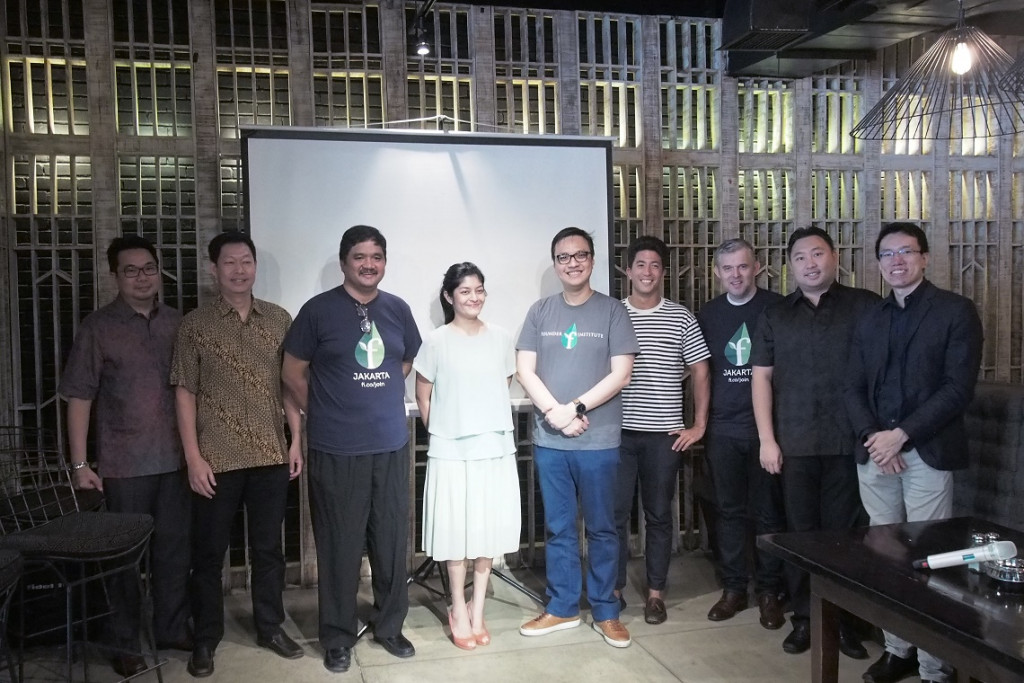
How do you see the accelerator programs encourage the business ecosystem growth in general? Also, a bit from the investor perspective.
As I’ve mentioned, there are already so many accelerator programs nowadays, however some are not even organized by tech-driven entrepreneurs. In other words, it is only to satisfy a craving for the latest trends. I’m not saying all accelerator programs, but we have to be really selective. When the program was held by a competent organizer, I believe the results will turn out great.
I, myself, is an ecosystem person. I believe, in order to be successful, we have to deeply root in the ecosystem. I used to a big believer in the mobile industry. When I first started in the business, we have no network, however, I tried many ways to build one. First, through the community, Mobile Monday, one of the biggest tech communities in Indonesia. As I moderate people sharing their big ideas, networking is going well. From mobile to the internet and now the startup ecosystem. The industry needs these kinds of resources, a powerful ecosystem, and connections.
Many startup founders are too ambitious, to the extent they might be ruined themselves, in other ways exploited their consumers. Again, with great power comes great responsibilities. It is our responsibility to create an example for the next generation not only aims for numbers but to make something that can transform our nation. We have all the access to a mentor, also as venture capital has access to funding.
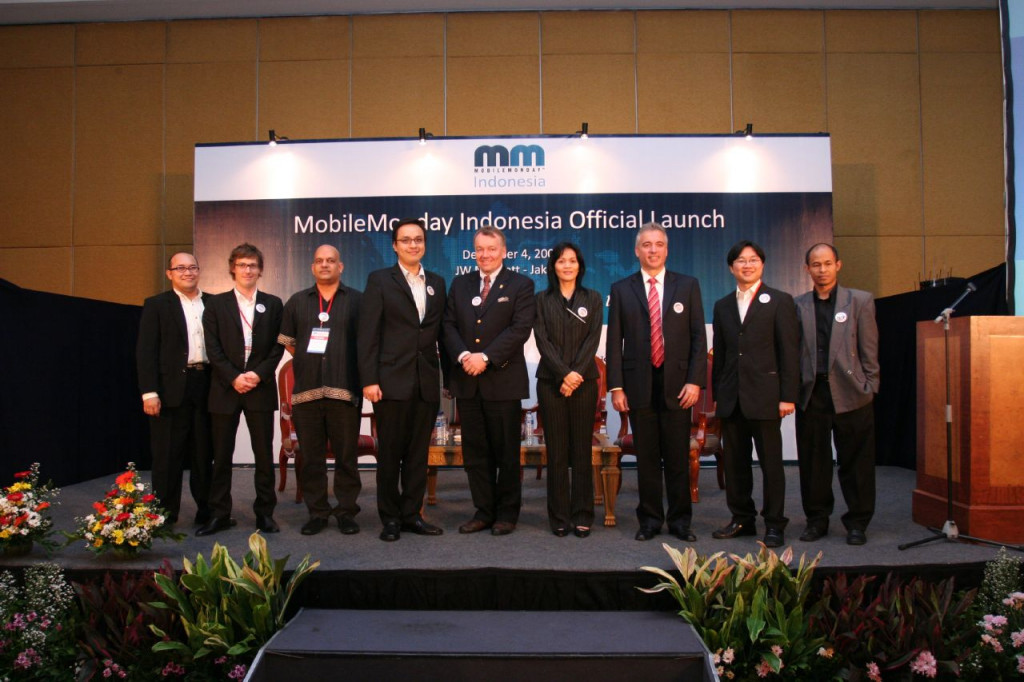
What kind of factors do you think that shapes great founders? Do you think Entrepreneurship was born or build?
I believe that people are born with different characters, and there are characteristics that make them more effective entrepreneurs. Excessive fear or insecurity will not help you in the process of building a venture. Also, reckless people can fall effortlessly in this industry. What I’m saying is, there are people who are born with supporting characters for entrepreneurial. Some maybe not, but they can work harder through some process.
What we are looking in great founders are integrity, maturity (some are delivered through the process), and expertise. In terms of chemistry and connection, we can work it out.
Do you think people without a background in technology science can succeed in the tech industry?
Don’t look at the tech industry as something different, that it is exclusively made only for those people who understand technology science and do coding. A startup is a new way to do business, the tech industry is a whole new journey. Just because you can’t code, doesn’t mean it’s impossible for you to build a venture. You still have much homework in order to understand the industry. Don’t be too obsessed with the technology, but also focus on the business, how to be able to run the business more efficiently through connectivity.
Before entering the investment industry, you have cofounded a company, also involved as a venture leader. What actually happens to your previous ones?
I started working since 19, for 12 years I worked with only one supervisor. I learned so much in the meantime. In my 30’s I decided to have something that can be entitled to my name. I cofounded Elasitas, a provider of integrated solutions for telecommunication and information marketplace focused on next-generation Mobile and Internet technologies combined with extensive R&D. Along the way, the mobile content which first intended as information on demand started to shift and misimplemented. After that, I leave to run another venture named SkyBee, which eventually becomes an Indonesian Stock Exchange (IDX) listed company in the technology, media & telecommunication sector.
Actually, the first Internet startup which I’m heavily involved in is eTravel8. It is an ambitious project at the time, a partnership of 8 travel agents in Indonesia to allow the first online ticket sales for the travel industry. To include live booking, ahead of everyone in the market. When e-tickets are still pretty much unknown.
Lesson learned, no matter how good is your execution, if the market is not ready, don’t force it. Fast forward 11 years later then we saw the birth of Tiket.com, followed by Traveloka.
What encourages you to start a venture capital? How is it, the early days of Kejora?
It was when I still actively mentoring and supporting launching for startups. My friend, Sebastian (another partner of Kejora), has just got back from the US. He said, why you always help others in terms of building venture, why not make one yourself?
I started Kejora in 2014. We’re started small with $2 million, a little bit more to $7 million, improved to $34 million, until we manage $200 million. It’s the process and we grow day by day. We try to make something that is not only commercial but also impactful.
When I started Kejora, we’re deeply rooted in the industry. Starting from the Founder’s Institute, ideabox [with Indosat], and many more in the long journey. Kejora might not have many portfolios, but we invest thick. We invested in a startup as early, involved as much in the growing. Yes, we are very hands-on with portfolios. We’re doing as close to a venture builder. We really believe the ecosystem will help, by working closely with the portfolio.
In terms of preference, we only invest in what we believe has great potential and where we can offer a real solution. There are two things founders must have expertise in the related sector, and some criteria that need time to build, such as network and reputation. The second is what we can use to support them. We’re trying to build an ecosystem here. It’s hard to find a great founder in one look, that is why we prefer to see the industry demand first.
Speaking of the pandemic, what was your first thought when the Covid-19 spread? Does it affect your company in a significant way? How about your portfolios?
We are quite grateful for the numbers of Kejora’s portfolios which are around 30. Our philosophy is not looking for what hype, it is to build something the market really needs. Kejora portfolios are rarely involving fancy technology or sophisticated branding. For example, we invest in fintech that helps people borrow money to run their business, logistics, and more primary necessity. A field that affects the lives of many people. That is why one-third of our portfolios are flying high. 20-30% are affected but still manageable.
It’s been over a decade you’ve been actively contributed to the tech industry, what is the biggest lesson learned during the journey?
I owe it to all my friends in the tech industry. Our consistency to treat and help each other is what keeps me survived in this dynamic industry. We’re living in an industry that always pioneering. Suppose we enter the world of the jungle, there will always be new and unexpected challenges. However, the power of networks can always help through the most difficult time.
You are quite experienced as a leader, what can you say to the founders experiencing a difficult time during this pandemic? How do you see our tech investment landscape will be after (if) the crisis end?
As people who have been granted with digital power, we should be very optimistic. Once everything recovers and research must start from scratch, there will be another world to overcome. We need to be ready when this time is coming. People are currently in a difficult situation, we are the most competent ones. We have channels to communicate, big data to analyze, we have this great power.
For people in the digital industry, use this power for good deeds. Now the burden passed, we need to create more powerful solutions to everyday problems. I am very excited to see how this will turn out. We, as Kejora, has prepared loads of funding, in order to fuel the upcoming wave of tech giants in this country.

